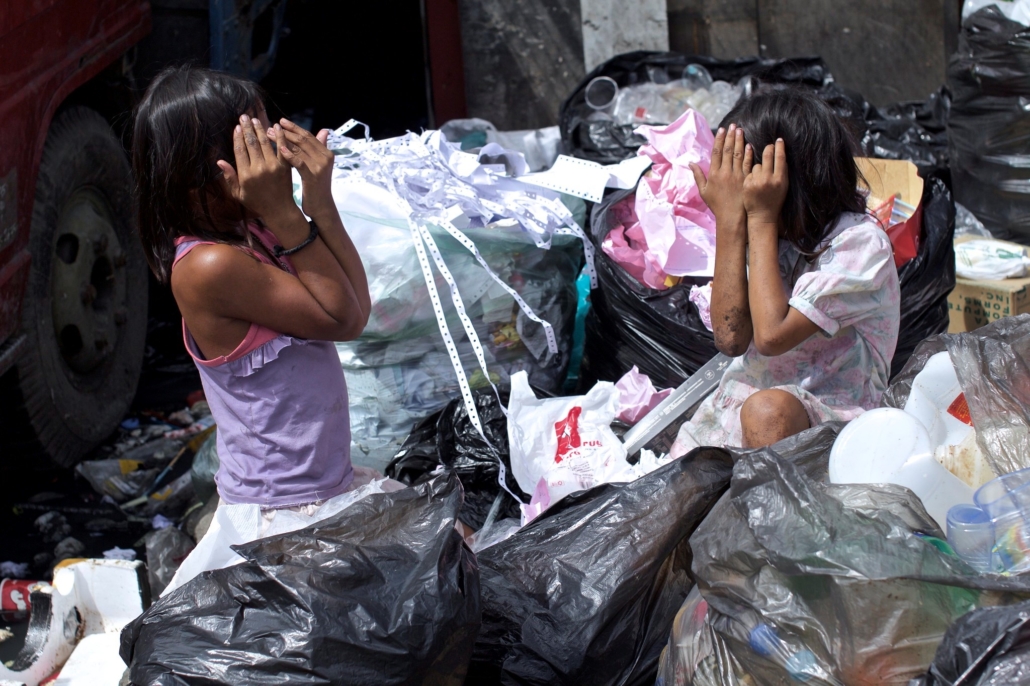The Inequalities That Women Waste Collectors Face

In developing countries where the most impoverished people live alongside garbage heaps and landfills, many earn livings as waste collectors. Although women waste collectors significantly outnumber male waste collectors, they face inequalities and disproportionate economic and health impacts in comparison to their male counterparts.
Plastic Waste Exports to Developing Countries
Wealthy countries often export their plastic waste to developing countries. The United States shipped close to “1.5 billion pounds of plastic waste to 95 countries” in 2019 alone. Developing countries welcome this waste as these nations receive trade incentives for accepting plastic waste exports from other countries. Plastic waste, therefore, stands as a source of income and a way to ease the suffering of a country’s most impoverished populations.
However, many developing countries lack the facilities and recycling programs to manage plastic waste effectively. The consequence is that the waste piles up and pollutes the surrounding environment. Individuals also resort to burning the waste, a practice that emits harmful dioxins into the air.
The environmental and health consequences of plastic waste disproportionately impact people who live and work in or around plastic waste dumps. In many countries, the informal waste collecting industry goes unregulated because they do not recognize waste-collecting as official employment. Because of this, there are often no protocols in place to ensure that waste collectors conduct their jobs safely.
The situation intensified in 2018 upon China’s refusal to accept foreign plastic waste, prompting countries to divert waste to other nations in Asia and Africa. The world openly burns roughly “41% of waste,” however, in some cities in Africa, as much as 75% of waste disposal consists of burning rather than recycling.
Waste Collecting as a Livelihood
The low value of plastic waste means women waste collectors remain stuck in a cycle of extreme poverty. In Nakuru, Kenya, waste collectors average a daily income of less than $2 per day “before accounting for expenses such as storage or transportation.” In terms of plastic specifically, in Nairobi, Kenya, waste pickers receive less than $0.05 per kilogram of plastic.
Although informal industries such as waste-collecting are challenging to monitor, according to a study in Ghana of women waste collectors in the plastic value chain, women who work as plastic waste collectors typically earn less than men. These women also have less power in the workplace, compete with men for the most valuable recyclables and lack equipment such as pushcarts, storage facilities and personal protective equipment. In Ghana, 74% of women working in plastic waste facilities have the lowest-paying positions (such as washing and sorting) and only 7% of women work in positions that allow them to make decisions.
Chemicals in Plastics Disproportionately Harm Women
The chemicals added to plastics during manufacturing come with known human health risks and some that disproportionately harm women. Body fat is an ideal storage site for bioaccumulating and lipophilic chemicals, and because women’s bodies store more fat than men’s, exposure to these chemicals leads to higher concentrations of absorption in women, even when the exposure rate is the same.
Chemicals that cause endocrine disruption (a process that changes the body’s hormonal system) can cause cancers, congenital disabilities, immune disorders, reproductive disorders, neurological disorders and developmental problems in women, fetuses and children. Endocrine disruptors (EDCs) such as bisphenol A, phthalates, dioxins, lead and cadmium are present in plastics used for food packaging, electronics, textiles, cosmetics and more. EDCs are an urgent international health issue, especially for developing countries where people are unable to protect themselves against high levels of exposure.
WIEGO Empowers Women Waste Collectors
Women in Informal Employment: Globalizing and Organizing (WIEGO) is an international organization dedicated to improving the conditions of people (especially women) who work in informal industries, such as women waste collectors. WIEGO has formed a partnership with Latin American waste collector movements, as well as organizations and institutions, to form the Gender & Waste project, “a collaborative project involving waste pickers.”
The Gender & Waste project works to empower women by highlighting gender-related discrimination among waste collectors and addressing the needs of women who work in this role. The Gender & Waste project offers educational workshops, toolkits and videos to both raise awareness and empower women waste collectors. The Gender & Waste project has empowered women waste collectors in Latin America to “mobilize more collectively and demand that gender be a key issue on the agenda of the national movement.”
In areas of the world where the government recognizes and supports waste collecting, such as in Belo Horizonte, Brazil, waste collectors generally “have higher incomes than other informal workers.” By empowering women waste collectors to unionize, initiatives like the Gender & Waste project help to improve working conditions, promote personal safety and ensure higher incomes. Safer working environments and higher incomes for women waste collectors safeguard the health and well-being of women and empower them to rise out of poverty.
– Jenny Rice
Photo: Flickr
